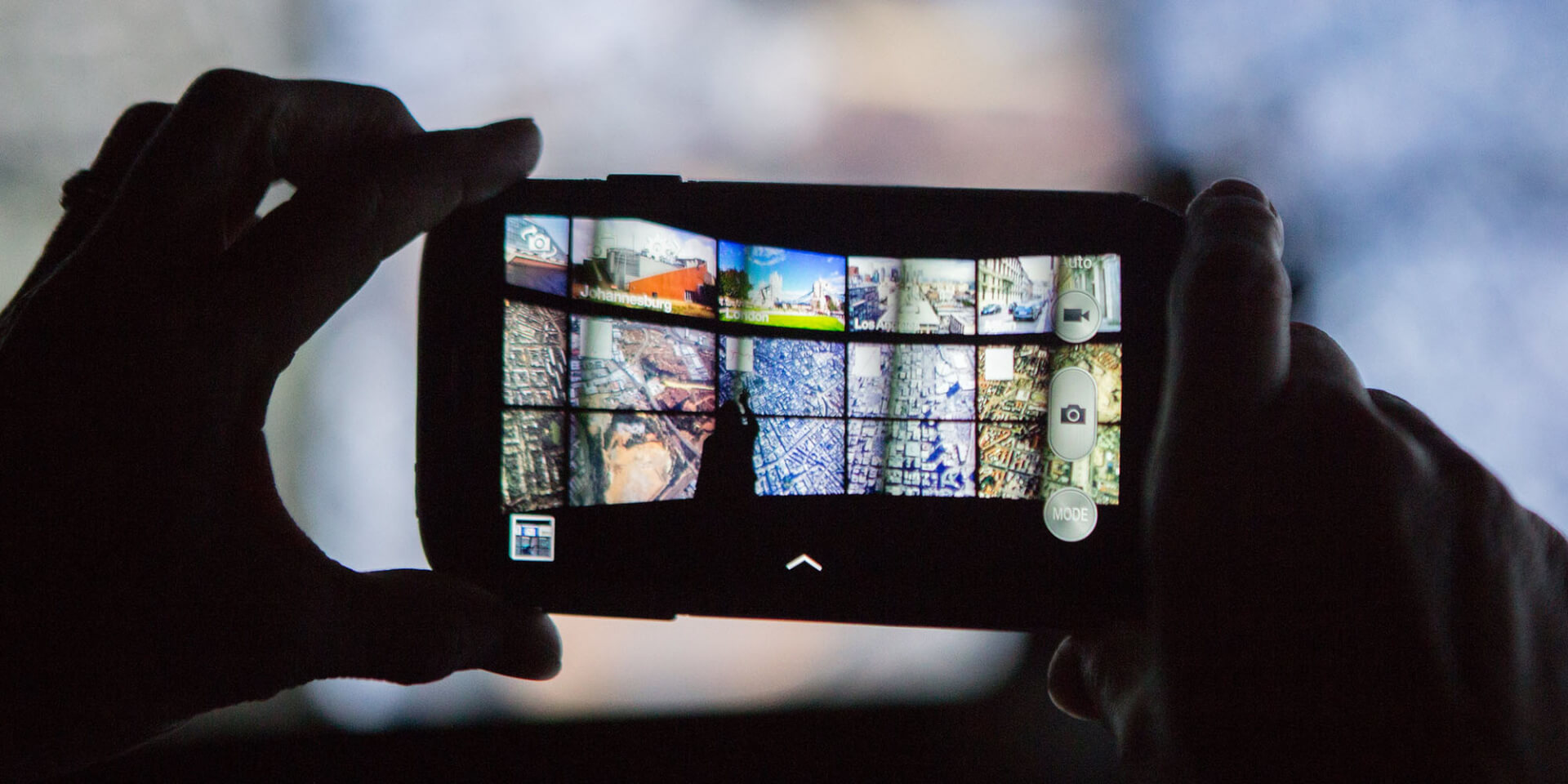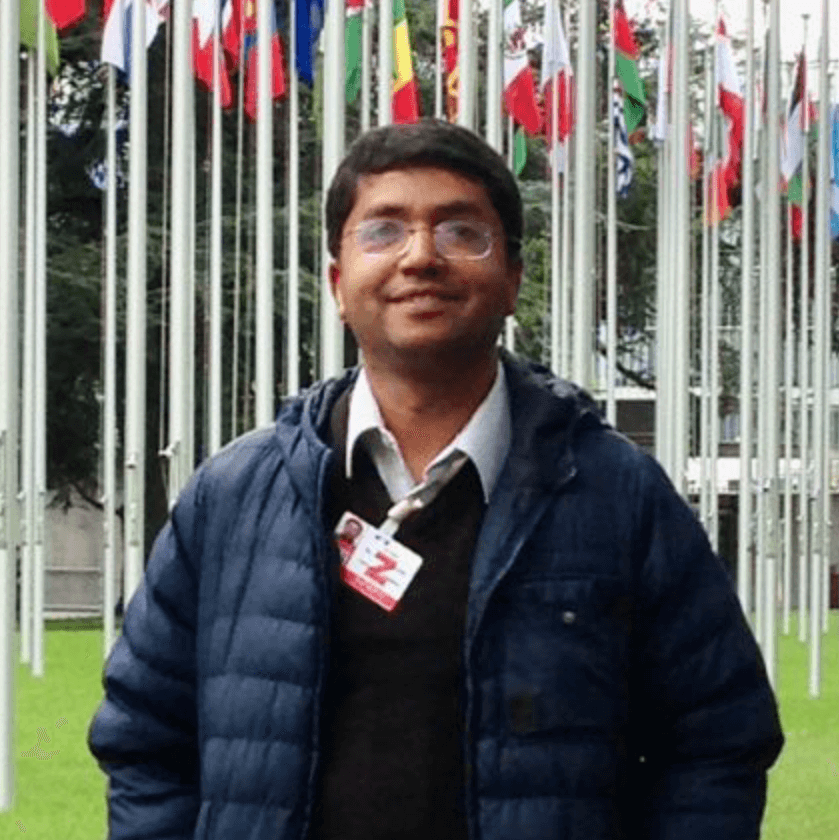
Aspiring to equity in science and tackling global inequalities is at the heart of the ISC’s position on Science as a Global Public Good, and the ISC’s Committee for Freedom and Responsibility in Science (CFRS) is currently engaged in an initiative to combat systemic racism and other forms of discrimination in science. As part of an ongoing online dialogue around collective and impactful action, CFRS Special Advisor, Gustav Kessel, interviewed Dr Suchith Anand, co-founder of the educational initiative Geo For All.
Suchith Anand, based in the UK, is an expert in sustainable development and geospatial science, providing guidance and advice to governments and international organizations on data science, data ethics, and on open education and science policies. Suchith Anand is a passionate opponent of racism in science and academia, and advocates for equal access to learning resources among students from low socio-economic backgrounds.

You advocate tirelessly for equal access to geospatial science education. What motivates you?
I have always been interested in open education and science. My main aim now is to help people from economically poor backgrounds get opportunities, and partly this is because of my own experiences. My journey to geospatial science was very serendipitous. I never knew about or planned to get into this field until I came across an article during my undergraduate years in India. This was around 1994/95, and at that time things were very different. There was no internet, computers were rare, and software like GIS [Geographic Information System] was extremely expensive technology that very few universities in India had access to. So, despite my best efforts to find and learn GIS as part of my final year project, I failed in my attempt and just could not get access, which really disappointed me. It was like trying to find a needle in a haystack. But in hindsight, I think this experience is what gives me the determination to make sure that others can get access to education opportunities. Many colleagues from the Global South still don’t have access to GIS. In my view, this is a social justice issue. Geospatial science has to be for everyone, not just those with financial resources to buy expensive software tools.
What is your approach to fixing this lack of access?
I think education is the best way. Through education we can change the life trajectories of some of the poorest students. This is why I co-founded Geo For All. Geo For All is an education initiative with the aim to make freely available, open-source geospatial software and learning resources. We now have over 100 open-source geospatial labs operating in universities around the world, striving for equality, diversity, and inclusion in geospatial science. But despite all the progress we are making, when you look at the top 20 or so universities in the UK, you don’t see many students from economically poor backgrounds or first-generation students in geospatial science. This is a sad fact. We need to expand the opportunities available to students from these backgrounds, not only in geospatial science, but in science generally. There is so much talent out there that just isn’t getting an opportunity. So now, I’m hoping to bring together university leaders and to advocate for each Russell Group university [an association of 24 of the UK’s most prestigious universities] to provide 100 scholarships per year for these students. The question is not “why do this?”, the question is “why not do this?”. This would create a huge ripple effect for representation in science. Let’s stop keeping the doors closed, we must open them!
You recently started speaking out about racism in science and academia, can you tell us about your experiences with this?
Many scientists and academics seem to be very averse to the notion that racial discrimination even exists in science. It’s very difficult to talk about and, quite frankly, it can be scary, especially when you are in a junior position. I’ve seen huge pressure to silence colleagues who speak out against racism, and I only recently got the courage to talk about this. For me personally, for example, I was working in my position for nearly ten years, doing really good work, publishing high quality papers, and bringing in lots of funding. But I routinely saw colleagues, with less experience, fewer achievements, and lower degrees get promoted ahead of me. This is a real trend that happens at some UK universities.
When I started Geo For All I faced a lot of opposition from some of my colleagues at my university, which really hurt me because this was exactly what I was trying to fight against. If other colleagues hadn’t helped me, hadn’t volunteered their time, and if I hadn’t had some of my international science networks for support, then Geo For All might not have happened. A colleague once asked me “if everybody can learn GIS, then what will be special about GIS?”. This is just completely the wrong attitude, and really, I think it is the antithesis of what science and education should be, as it is in direct opposition to open knowledge. Attitudes like this are a big problem in academia, and even though most universities use buzzwords and try to tick boxes on equality, in practice there can be very little support for victims or for people who raise a complaint against racism. I feel like it is my responsibility to speak out against racism. I hope that this will give courage to others who are in these situations, just as articles like those in the recent Nature Special Issue on Racism in Science have given me courage. I also hope that by hearing our voices, people who would otherwise be unaware of racism occurring around them will be more perceptive to the problem. If we don’t talk about it, how can anything ever change?
Can these mindsets be changed? Why is it important to have diversity in geospatial science, and in science more broadly?
People from privileged backgrounds might just not understand the struggles that some of their colleagues and students from low socio-economic backgrounds go through. Actually, some of my colleagues who opposed Geo For All at first later became some of my best supporters. You have to be patient, but over time things can change and opponents can become allies.
Diversity is key for tackling global challenges. If we want to solve global problems, we need a global perspective. I think geospatial science in particular is very important for meeting the UN Sustainable Development Goals (SDGs). All of the 17 goals have a spatial component, which geospatial science will be crucial in addressing. But we need to have diverse voices involved, from economically poor backgrounds, from the Global South, and with all sorts of experiences. I think that making geospatial science open and accessible to the whole global community is fundamental to the success of the SDGs.
What is your view for the future? Do you have a message for ISC members?
I’m very optimistic. If we can push for more scholarships for students from diverse backgrounds, then in another 20 years these students will become leaders in their fields who are aware of the struggles faced by people from economically poor backgrounds or minorities. I think its everyone’s responsibility to ensure equal access and to fight against racism in science. We must all try to make sure that there is no discrimination in our department or in our team, and to speak out, and to support people who report these problems. Through organizations like the ISC we have a global network of colleagues from all around the world. We need to channel this vast expertise and draw on our networks to bring science leaders, university leaders, and policy-makers together to really think about the social purpose of science and to create opportunities, policies, and frameworks that will ensure an inclusive future for science. No problem is too big. If we can all contribute to making small changes then this will add up to a big change.
Image by Kris Krüg via Flickr.